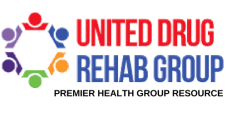Drug Addicted Newborn Babies
Entering life in a state of opiate withdrawal is becoming increasingly prevalent as more drug-addicted babies are born in the midst of today’s heroin epidemic. The number of infants checked into emergency care units almost quadrupled between 2004 and 2013, based on a recent New England Journal of Medicine article. In addition, the national general occurrence rate practically doubled within four years. According to reports by scientists at Vanderbilt University, this issue costs about $1,500,000,000 in health insurance expenses annually.
Occurrences are most common in certain areas in Alabama, Kentucky, Mississippi, and Tennessee. Kentucky in particular has one of the highest rates, with emergency check-ins for drug-addicted babies rising from 955 hospitalizations in 2013 to 1,409 hospitalizations in 2014, an increase of 48 percent.
Common Symptoms and Therapies
Young children coping with addiction cry loudly and frequently. They also endure diarrhea, vomiting, difficulty eating, fevers, breathing problems, and even seizures. They have low tolerance to sounds and lights, so intensive care units must be quiet and dimly lit. Therapy consists of decreasing dosages of morphine sulfate and soothing techniques such as rocking and cradling to make them more tranquil. For these afflicted children, a gradual detox from a powerful drug becomes their first encounter with the world.
MEDNAX neonatal specialist Veeral Tolia from Baylor University Medical Center states that the increase is a primary reflection of the modern opiate craze in the U.S. With 46 people dying every day from prescription painkiller overdoses all over the country, it is difficult to deny that there’s a problem.
Health professionals say the increase in the number of heroin-dependent mothers is alarming. One proposed theory is that more people are switching to heroin because it is cheaper and easier to access than prescribed painkillers, which are closely regulated due to their equally high abuse potential.
Regardless of the cause for heroin’s surge in popularity, neonatal expert Lori Devlin-Phinney at the University of Louisville says that in the UOL Hospital, it’s the top drug of choice among pregnant women – so while the fundamental cause remains unclear, the numbers continue to rise.
An Excess of Pain Prescriptions to Blame?
Some experts suspect the sharp increases in pain pills prescribed to pregnant women are also pushing up NAS (neonatal abstinence syndrome) rates. Based on a report by the CDCP, health practitioners handed out nearly 260,000,000 prescriptions for pain medication in the year 2012 alone.
The ten states with the greatest number of pain prescriptions issued were in the southern region of the United States. Pediatric expert and perinatologist Stephen Patrick from Vanderbilt University conducted a study that revealed a whopping 28% of all pregnant Medicaid patients in the state of Tennessee had received at least one opiate painkillers prescription.
Unfortunately, even taking opiates for legitimate reasons not only increases the chance of a child developing NAS, it may also result in addiction, and substance abuse treatment facilities for expectant mothers can be difficult to find. In fact, fewer than 20% of the 11,000 drug rehab centers listed by SAMHSA offer programs for women who are pregnant.
A Lack of Available Programs
The scarcity of these programs means that mothers may have to wait or relocate in order to receive adequate treatment. Even if a drug facility considers pregnant females its number one priority, a short delay may discourage them from seeking proper treatment in an addiction recovery program. According to neonatal specialist Dawn Forbes from Kosair Children’s Hospital, this puts developing fetuses at risk, so there’s a very limited amount of time to successfully enroll expecting mothers in a substance abuse treatment center.
If you are an expectant mother seeking treatment at an addiction recovery facility, get in touch with Right Path substance addiction clinics today and take your first step on the road to recovery.



